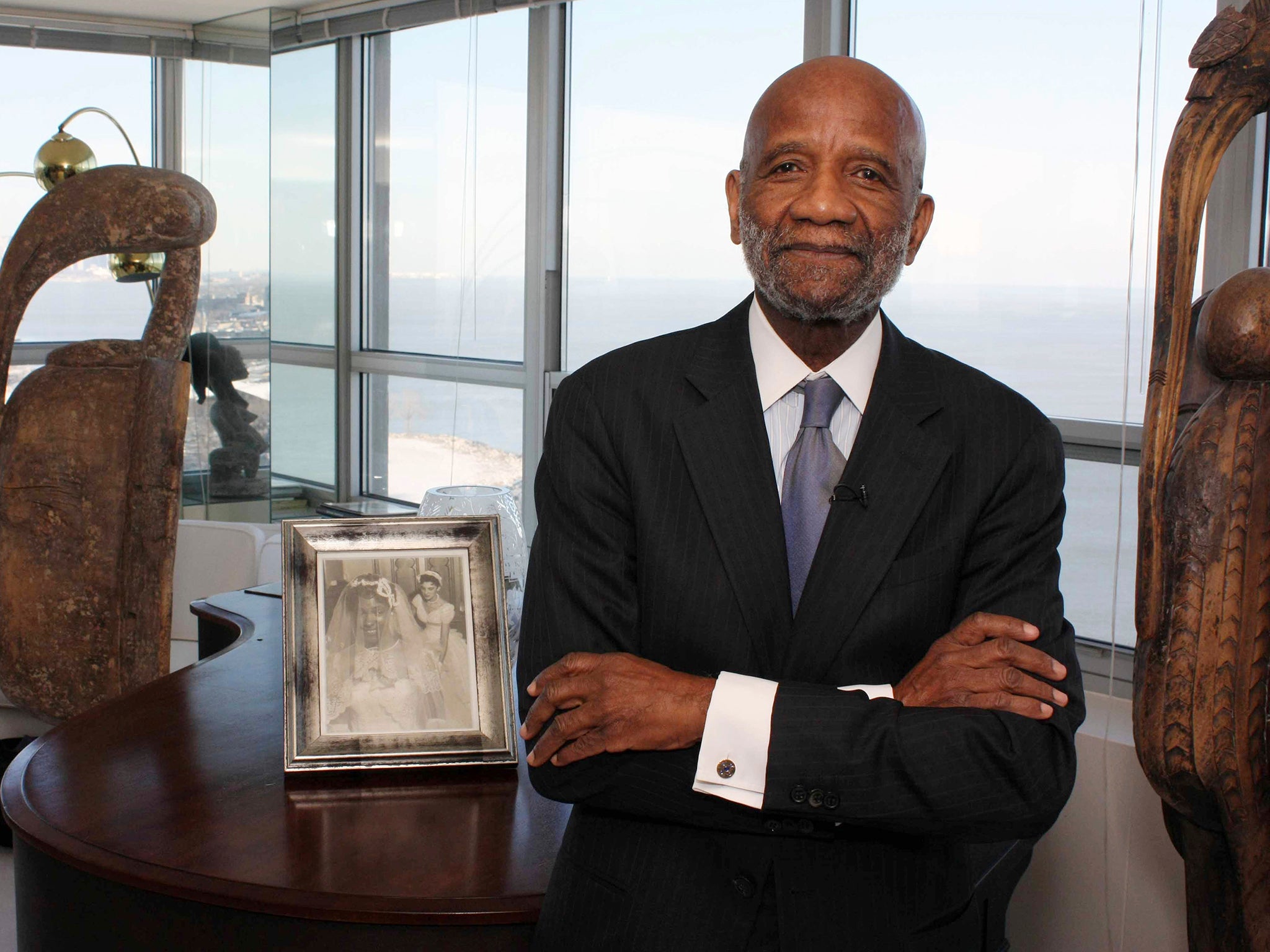The Independent's journalism is supported by our readers. When you purchase through links on our site, we may earn commission.
Lerone Bennett Jr: Ebony magazine journalist and historian who claimed Lincoln was a white supremacist
A firebrand to the core, he did not mince his words in setting out to challenge dominant narratives about the role of black people in creating America

Lerone Bennett Jr was the Ebony magazine journalist and historian behind a provocative study that accused Abraham Lincoln of being a white supremacist.
The Chicago-based chronicler of the African-American experience was the author of Before the Mayflower: A History of Black America, a landmark study published in 1963 that sold more than a million copies.
Bennett, who has died aged 89, grew up under segregation in Mississippi, joined Ebony magazine in 1953 and helped make it the country’s largest black-affairs publication, with a circulation at its peak of almost two million.
“He has reached many people that none of the rest of us have reached,” historian John Hope Franklin once said. “He has done a great deal to advance the cause of [African-American] history.”
Bennett’s What Manner of Man, published in 1964, was one of the first major biographies of the Martin Luther King Jr, whom he had known since they were students together at the historically African-American Morehouse College in Atlanta.
Bennett also helped direct Ebony’s coverage of the civil rights movement in the 1960s, contributing essays that helped capture the mood of the times.
“The basic fact of the Negro situation is shattered community,” he wrote in a 1965 book, Confrontation: Black and White. “Negro and white Americans do not belong to the same social body. They do not share that body of consensus or common feeling that usually binds together people sharing a common land.”
He was critical of the country’s white leaders but was also unsparing towards the black power structure, represented by the NAACP (National Association for the Advancement of Coloured People) and Urban League, which he said was out of touch with the needs of working-class African Americans.
Bennett continued to publish far-reaching works of history, such as Black Power USA (1967), about the reconstruction era after the Civil War, and The Shaping of Black America (1975), which examined the origins of slavery.
“Black people have been in the bone and marrow of this country,” he said in 1993, “part of George Washington, part of Thomas Jefferson, and there is no way to understand what this country is all about unless you understand their role.”
In 1968, Bennett published an essay in Ebony,with the bold title of “Was Abe Lincoln a White Supremacist?” He took issue with the prevailing image of Lincoln – among both black and white Americans – as the great emancipator who freed enslaved people during the Civil War.
“No other American story is so enduring,” he wrote. “No other American story is so comforting. No other American story is so false.”
Lincoln called for black Americans to be resettled in Africa, Bennett said, used derogatory terms for black people and “shared the racial prejudices of most of his white contemporaries.”
Bennett expanded his ideas into a 652-page book, Forced Into Glory: Abraham Lincoln’s White Dream, in 2000.
“If Lincoln had had his way,” he wrote in one of the book’s more incendiary passages, “Oprah Winfrey, Martin Luther King Jr, Jesse Jackson Sr, Lena Horne, Muhammad Ali, Hank Aaron, Maya Angelou, Malcolm X, Rosa Parks ... and even Clarence Thomas would have been born in slavery.”
Some readers considered the book a welcome corrective to what they saw as a whitewashed view of Lincoln. Other scholars were harsh in their reviews, charging Bennett with wilfully distorting historical evidence, omitting contradictory studies and ignoring key facts about Lincoln’s changing views.
“Bennett gets more wrong than he gets right,” James McPherson, a leading Civil War historian, wrote in The New York Times, citing Lincoln’s statements against the spread of slavery and favouring its “ultimate extinction”.
“The old canard,” McPherson wrote, “that the Emancipation Proclamation freed not a single slave, repeated by Bennett, could not be more wrong.”
Lerone Bennett Jr was born in Clarksdale, Mississippi in 1928. His parents divorced when he was young. His mother worked as a cook.
“Since I was a child, I was just fascinated by the printed word,” Bennett said in 1985. He was 12 when he began writing for a weekly black newspaper in Jackson, Mississippi, where he attended a segregated high school.
He graduated from Morehouse in 1949, working his way through college by playing alto saxophone in jazz bands. He was a journalist in Atlanta before moving to Chicago in 1953 to work for Jet magazine. A year later, he joined Ebony, where he remained into his eighties.
His wife of 52 years, Ebony journalist Gloria Sylvester Bennett, died in 2009. A son died in 2013. Survivors include three daughters; and several grandchildren.
Growing up in the South under the Jim Crow segregation laws, Bennett often witnessed violence directed to black citizens by the police and other authority figures.
“I got this mad idea that if I could just find out why Mississippi was what it was, why racism existed,” Bennett said. “I would first of all be in a position to understand it, and secondly be in a position to maybe do something about it. This had nothing to do with academics. To me it was a question of survival: a matter of life and death.”
Lerone Bennett Jr, American journalist and author, born 17 October 1928, died 14 February 2018
© Washington Post
Subscribe to Independent Premium to bookmark this article
Want to bookmark your favourite articles and stories to read or reference later? Start your Independent Premium subscription today.

Join our commenting forum
Join thought-provoking conversations, follow other Independent readers and see their replies